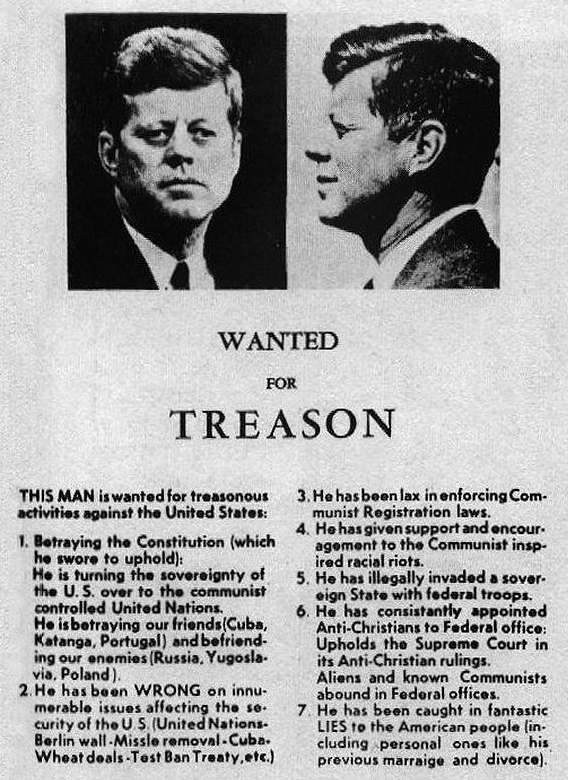The more fundamental difference between the Obama era and its New Deal and Great Society predecessors is this: Back then, progressives did not define the left end of the political spectrum. In the 1930s and 1960s, America featured honest-to-goodness alternatives to capitalism, home-grown radical movements that scared the crap out of the American establishment and sent some of its denizens scurrying into arms of reformers like FDR and LBJ. Because our entire ideological spectrum has shifted right since communism’s collapse, reforms that once looked like centrist compromises now look like the brainchild of Chairman Mao.Technically, much of this is correct. But it ignores the little fact that Franklin Roosevelt was called a socialist by the far right of his day. Everybody knows this, and the right wing still believes it today, but Roosevelt was not a socialist by any means. In fact, like Obama, FDR fought his left wing when it came to nationalizing the banks and up until World War II the government seized approximately zero private enterprises, so far as I can tell. His economic views were fundamentally the same as Winston Churchill's, who is often regarded by conservatives as "their" WWII leader because of their disdain for Roosevelt's policies, even though Churchill was an avid and early supporter of this. And for conservatives who are unclear as to what real socialism looks like, there's a pretty good example of it here. Say what you like about Roosevelt, but he was extremely uninterested in doing any of that stuff. And yet the right wing called him a socialist anyway. It's almost as if they don't have a clue what the word means.
And then there's this little matter:

The poster's amateurishness aside (they couldn't find a picture of Kennedy from the front with a white background?), I think it says everything one needs to know about how the far right viewed the moderate Jack Kennedy back in the 1960s. These days, most Republicans like to say that Kennedy would be a Republican were he alive today. I think it's fair to say that this is an exaggeration. Kennedy did favor cutting taxes and a somewhat confrontational military posture, and he wasn't a labor liberal by any means. But he favored numerous expansions of the involvement of government in peoples' lives, including Medicare, Medicaid and Civil Rights. JFK was also a close personal friend and ideological soul mate of Chief Justice Earl Warren, whose jurisprudence absolutely infuriated conservatives in so many ways. Warren effectively demolished the notion of states' rights in a way that conservatives have found impossible to reverse, and Kennedy consulted extensively with him on his Supreme Court picks. It's true that Kennedy's picks didn't quite live up to what Warren might have expected of them--Byron White wound up as a Frankfurteresque political liberal/judicial conservative on the Court and Arthur Goldberg only held his seat for a few years, at which point LBJ decided that he wanted to put some of his cronies on the bench. But the fact remains that, despite what they might say now, conservatives of the day had very little use for John F. Kennedy, and their treatment of him was about the same as their treatment of all modern Democratic Presidents, from FDR through Obama. That there might have been a nominal socialist movement in America back then (and an even more marginal communist movement) seems largely irrelevant since most conservatives either didn't believe the differences between hard-leftism and liberalism were very great, or they figured that all of them were in cahoots and part of the same larger problem.
What Beinart is doing is trying to apply the conventional wisdom of how conservatives feel about past presidents now to formulate a theory about how they felt about the same guys back then. These days, quite a few conservatives have decided that Kennedy was practically one of them, and many have also decided that Clinton wasn't all that bad. While conservatives in my personal experience still harbor anger toward Franklin Roosevelt and Jimmy Carter, very little seems to be thrown in Lyndon Johnson's direction, which perhaps makes sense in the context of the times (JFK's death, LBJ's commitment to bombing Vietnam) but is difficult to square with Johnson's domestic policy record. The most natural reading of all this is that while conservatives have mostly treated all post-Wilson Democratic presidents in roughly the same manner while they're in office, some of those men either won their battles so completely that conservatives had no choice but to move on and accept their losses (Johnson) or turned out to be not too threatening to the right wing in the final analysis (Kennedy and Clinton). Of course, that Jimmy Carter isn't in the latter category, and is in fact perhaps more vilified than Roosevelt, is completely baffling to me. I guess you had to be there?